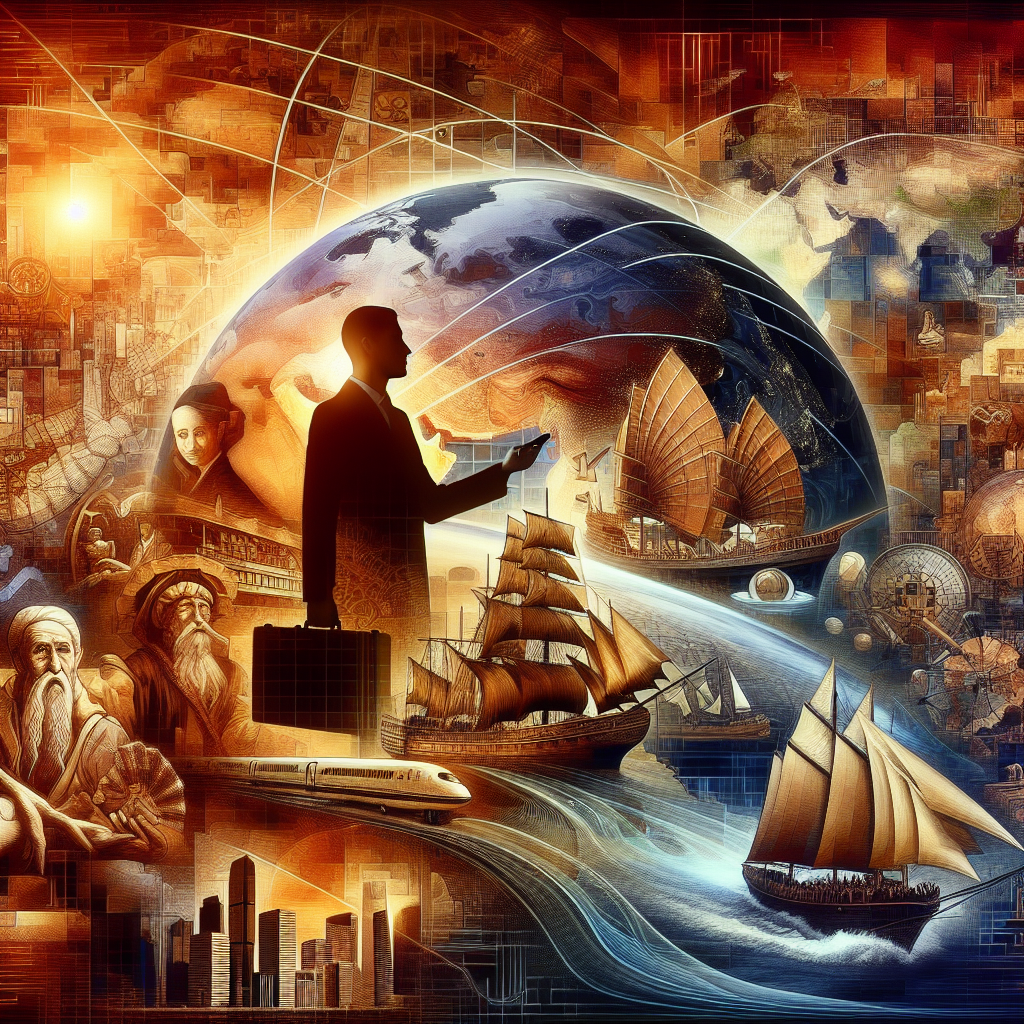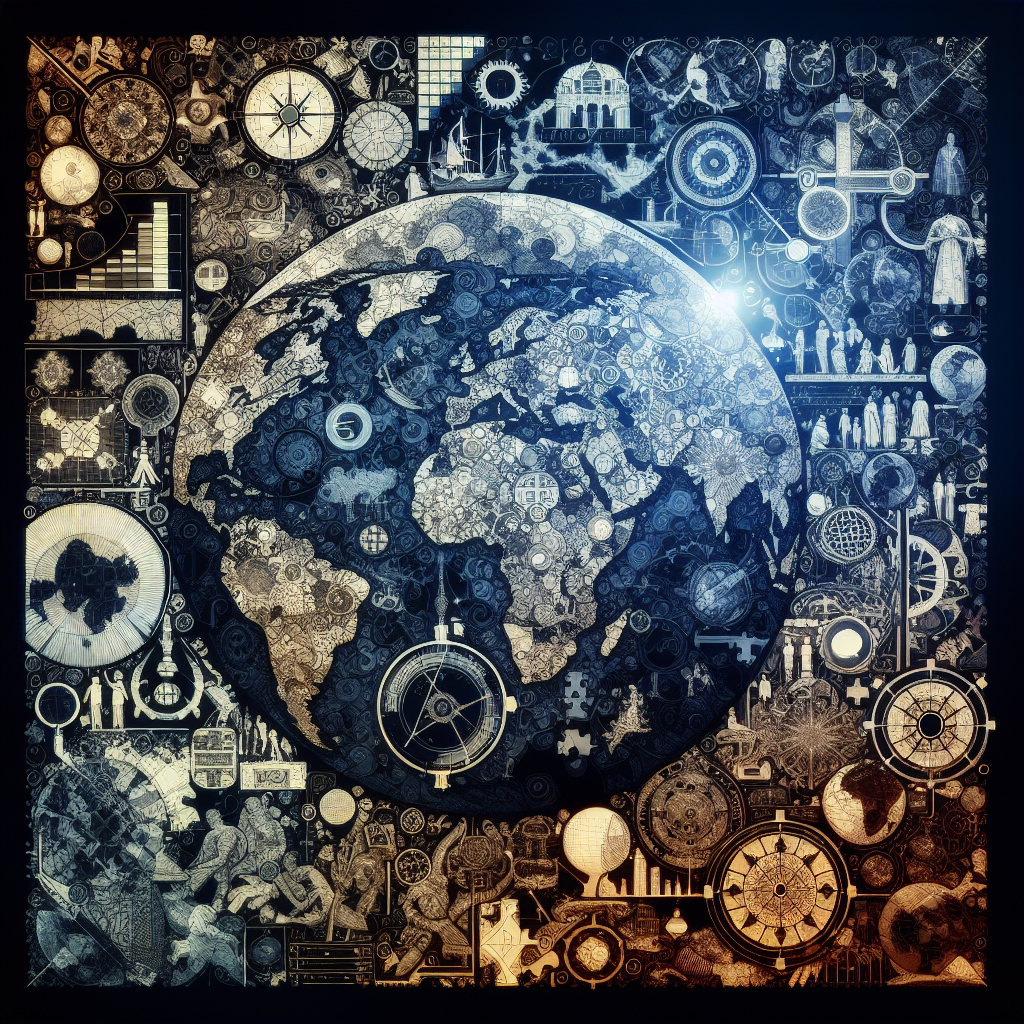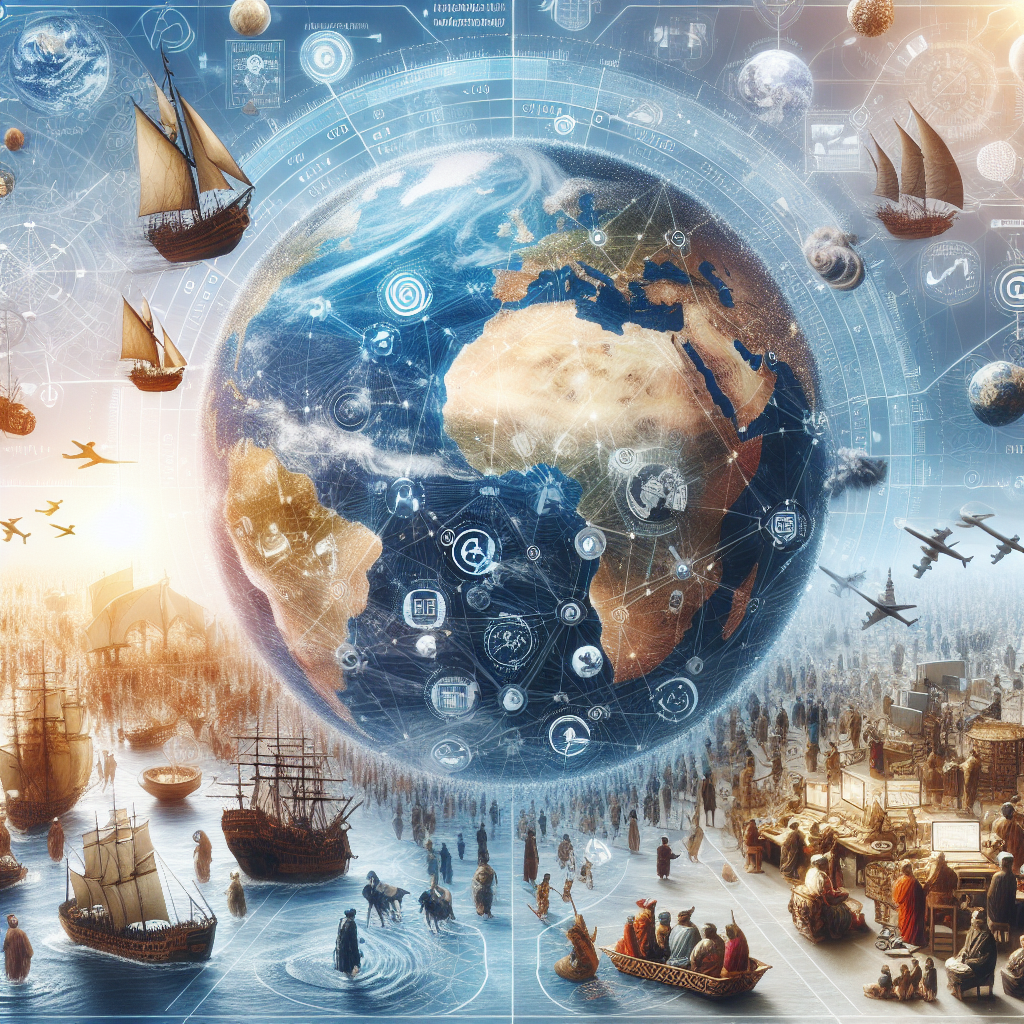Unveiling the Enigmatic Origins of Globalization: A Historical Perspective
- ChatStick For Brand
- Aug 30, 2024
- 5 min read
The concept of globalization is a multifaceted phenomenon that has significantly influenced the interconnectedness of nations and people across the globe. It represents a complex web of economic, social, political, and cultural interactions that transcend borders and shape the modern world. Globalization has its roots in the early stages of human history when trade routes were established, facilitating the exchange of goods, ideas, and technologies between distant civilizations.

As societies evolved and technology advanced, the process of globalization accelerated, leading to the emergence of a global economy and interconnected networks of communication and transportation. The Industrial Revolution further propelled globalization by fostering the growth of international trade and the expansion of colonial empires.
In the contemporary era, globalization has reached unprecedented levels, driven by rapid advancements in information technology, communication, and transportation. The rise of multinational corporations, global supply chains, and interconnected financial markets has transformed the way goods and services are produced, distributed, and consumed.
However, globalization is not without its challenges and controversies. Critics argue that it has led to the widening gap between the rich and the poor, the loss of cultural diversity, and the exploitation of labor in developing countries. Despite these concerns, globalization continues to shape the world in profound ways, connecting people from different backgrounds and fostering a sense of global citizenship and interdependence.
The Early Seeds of Globalization
Globalization, often thought of as a modern phenomenon, can be traced back to ancient times when the exchange of goods and ideas began to transcend geographical boundaries. The Silk Road, for instance, connected the East and West, facilitating trade and cultural exchange as early as the Han Dynasty in China. This historic trade route laid the foundation for the interconnected global economy we see today.

The Age of Exploration and Colonization
The dawn of the Age of Exploration in the 15th century marked a pivotal moment in human history, where the ambitions of European powers propelled them towards uncharted territories across the globe. The thirst for new trade routes, exotic resources, and territorial expansion ignited a wave of maritime expeditions that would forever alter the course of civilization. As ships braved the vast oceans, they not only redefined geographical maps but also facilitated the exchange of ideas, technologies, and traditions between distant lands.
Explorers such as Christopher Columbus, Vasco da Gama, and Ferdinand Magellan navigated treacherous waters, facing unknown dangers and uncertainties with each voyage. Their journeys not only expanded the known world but also sparked a complex web of interactions between diverse cultures. The encounters between Europeans, indigenous peoples, and civilizations from Asia, Africa, and the Americas led to a fusion of languages, religions, and customs, creating a global tapestry of interconnected societies.
The Age of Exploration was not merely a quest for riches and power; it was a catalyst for the exchange of knowledge and innovations that would shape the modern world. The introduction of new foods, technologies, and ideas revolutionized industries, agriculture, and social structures, laying the foundation for the interconnected global society we inhabit today. The legacy of this era continues to resonate in our modern world, reminding us of the enduring impact of those intrepid explorers who dared to venture into the unknown in search of a brighter future.

Industrial Revolution and Technological Advancements
The Industrial Revolution marked a pivotal moment in history as it brought about a profound transformation in the way goods were produced and transported. The introduction of steamships revolutionized sea travel, enabling goods to be transported across oceans in a fraction of the time it previously took. Railways, with their extensive networks, facilitated the movement of goods and people over vast distances, opening up new markets and opportunities for trade. The telegraph, a groundbreaking communication technology, allowed for near-instantaneous transmission of information across continents, bridging the gap between distant regions and fostering closer connections between people and businesses.
As these technological innovations took hold, the world witnessed a rapid expansion of global trade and cultural exchange. Goods from one corner of the world could now reach markets on the other side of the globe, leading to the integration of economies on a scale never seen before. The flow of ideas, information, and resources became more fluid, sparking a wave of innovation and progress that reshaped societies and economies worldwide.
The interconnectedness brought about by the Industrial Revolution laid the foundation for the modern globalized world we inhabit today. The networks of trade and communication established during this period continue to shape our interconnected world, influencing everything from business practices to cultural exchanges. The legacy of the Industrial Revolution lives on in the globalized landscape we see today, a testament to the enduring impact of technological progress on shaping our interconnected world.
Challenges and Opportunities in the Modern Era
In the 21st century, globalization has become both a boon and a challenge for nations worldwide. While it has led to unprecedented economic growth and cultural exchange, it has also raised concerns about income inequality, environmental degradation, and cultural homogenization. The rapid flow of information and capital has transformed the world into a tightly knit global village, where the actions of one nation can reverberate across the globe.

Embracing a Global Future
As we stand at the crossroads of history, it is essential to reflect on the intricate evolution of globalization and its profound impacts. The world today is more interconnected than ever before, offering endless opportunities for collaboration, innovation, and progress. By understanding the historical roots of globalization, we can navigate the complexities of the globalized world with wisdom and foresight, ensuring a prosperous and harmonious future for generations to come.
Through the lens of history, the story of globalization unfolds, revealing a saga of innovation, cooperation, and transformation that continues to shape our world in ways both profound and enduring. Let us embrace this global journey with open minds and hearts, forging a path towards a brighter and more interconnected future for all.
With each step we take, we contribute to the ongoing narrative of globalization, weaving together the diverse threads of humanity into a vibrant tapestry of shared experiences and aspirations.
As we look to the horizon of tomorrow, let us embark on this journey of discovery and connection, embracing the rich tapestry of our global heritage as we march towards a brighter tomorrow, hand in hand.
Let us celebrate the past, embrace the present, and envision a future where the global tapestry of humanity is woven with compassion, understanding, and solidarity.
In the ever-evolving landscape of globalization, the history that shapes our world today is as rich and diverse as the cultures it connects. As we navigate the complexities of this global fabric, let us remember that our shared history is the foundation upon which we build a more interconnected future for all.



Comments